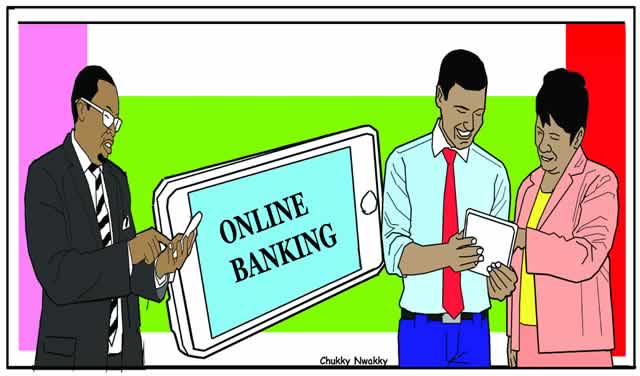
Not less than 12 Nigerian banks have cashed in on the naira redesign policy of the Central Bank of Nigeria to boost its electronic banking income, the PUNCH has learnt.
An analysis of the financial statements for the first quarter of 2023 of the banks showed that they generated total revenue of N96.48bn from their electronic banking platforms.
This was an increase of 23.84 per cent from the N77.91bn recorded in the previous quarter of 2022.
The PUNCH learnt that the top two e-banking earners were the United Bank for Africa Plc (N20.93bn) and Access Holdings Plc (N20.66bn).
Other top earners included Zenith Bank Plc (N12.08bn), FirstBank Nigeria Limited (N17.88bn), and Guaranty Trust Bank Plc (N11.43bn).
Others included FCMB (N6.58bn), Union Bank (N1.97bn), Wema Bank (N1.52bn), Unity Bank (N1.29bn), Stanbic IBTC (N958m), Fidelity Bank (N955m), and Jaiz Bank (N244m)
Electronic banking income includes revenue from electronic channels, such as mobile applications, USSD channels, and internet banking.
The growth in e-business income seems to be driven by the naira redesign policy of the CBN.
Since a now postponed CBN’s naira redesign policy forced many Nigerians to electronic forms of payment, the volume of cashless transactions in the country has grown.
Cashless transactions grew by 44.84 per cent to N126.73tn in first quarter of 2023 from N87.49tn in the corresponding period of 2022, according to industry statistics from the Nigeria Inter-Bank Settlement System
The CBN has stressed that the use of cash payments will reduce in the country by 2025. It stated this in its Payments Vision 2025 document.
It explained that by 2025, the country will have a cashless and efficient electronic payment system infrastructure to service all sectors of the economy.
It said, “The use of cash will naturally slow with the ‘mobile first generation’, which will be economically active by 2025, hence one of the focuses of the PSV 2025 is enhancing the cashless policy of the CBN.
“As we implement the PSV 2025 agenda, the CBN will continue to ensure that the Nigerian payments system is widely utilised domestically, supports the government’s financial inclusion objectives, and meets international standards while contributing to overall national economic growth and development of Nigeria.”





